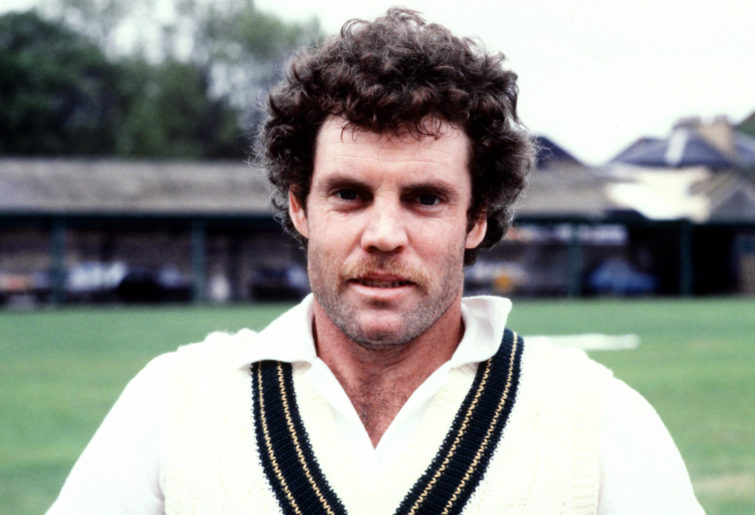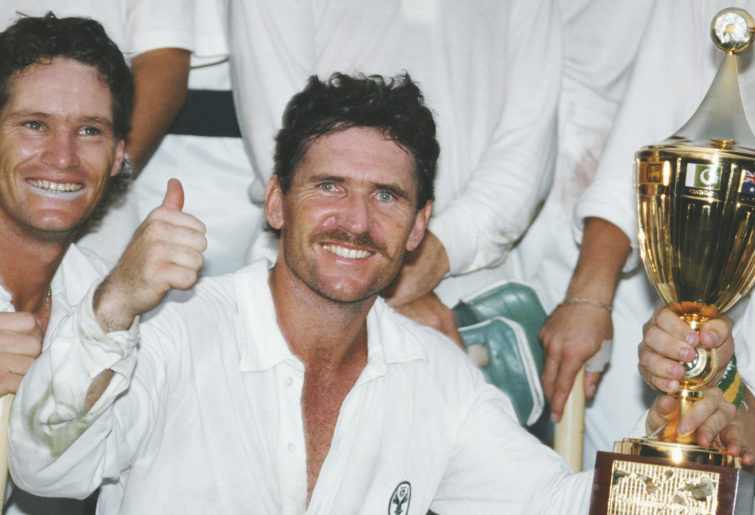World Cup chances up in the air but Smith makes Major call on T20 future, Green dumped despite huge IPL deal
Test great Steve Smith is to play for Washington Freedom in the second season of Major League Cricket as the Australian influence in the…
Opinion
At the beginning of the 1980s, the one-day game was still in its developing stage.
And the Australian cricket team and the media (particularly Channel Nine) played a big part in this development. Interestingly, the Australian team took a bit of time to properly develop their own ODI strategy. It was only in the second half of the decade under Allan Border that they became a major force in limited-overs cricket.
Here, I will be looking at five memorable ODI innings by the Australian batsmen during the 1980s. I must add that not all these efforts led to an Australian success.
Trevor Chappell: 110 versus India at Trent Bridge, 1983 World Cup
The villain of the Trans-Tasman drama at MCG back in 1981, Trevor enjoyed a rare international success in this match. He was brought into this match as a replacement for injured Graeme Wood. And he was picked in an unfamiliar role as an opener.
The Australians’ team morale was low as they had lost their previous two fixtures. But here they took early control thanks to the 144-run second-wicket stand between Trevor and Kim Hughes. For once, a Chappell-Hughes combination worked well.
Trevor was the dominant partner and his skipper played the supporting role. Trevor scored 110 from just 131 deliveries. His strike rate of 83 was highly acceptable in those days. There were 11 hits to the fence.
Trevor was the fourth man out, but Graham Yallop’s quick 66 not out took the score to 9-320 from the 60 overs.
The 162-run victory briefly revived the Australians’ hopes, but eventually they failed to reach the semi-final. And it was a false dawn for Trevor: his Australian career ended after scores of 22, five and two in the remaining World Cup fixtures.

(Photo by S&G/PA Images via Getty Images)
Allan Border: 127 not out versus the West Indies at the SCG, February 1985
The home side went into the three-match final as the clear underdogs. The West Indies team seemed superior to them in every department.
Here, the West Indies team wasted no time in taking the initiative. Joel Garner quickly removed the openers to leave Australian at 2-7. Border came to the wicket. He was in fine form, having scored an unbeaten hundred against Sri Lanka in Adelaide in his previous innings. Still, he looked uncomfortable with Garner getting extra bounce off the wicket.
A 51-ball 11 from Kepler Wessels at the other end didn’t do much good to the team’s cause. And when a young Dean Jones was bowled by Winston Davis, it was 4-64. The writing seemed to be on the wall.
It was the century stand between Border and wicketkeeper Wayne Phillips that really raised the Australians’ hopes. With his captain playing superbly at one end, Phillips’ job was mainly to support him. Still, his 50 from 71 runs was of great value.
Border carried on until the end, finishing unbeaten on 127 from 140 balls. And it became a match-wining knock, as the five-pronged Australian pace attack bowled the West Indies out for 221.
Wayne Phillips: 56 not out versus the West Indies at the MCG, February 1985
The brilliant hundred by Border at the SCG meant that Australia went into this match 1-0 ahead. And for the most part of this match, it seemed that they would win this one to take the trophy.
Perhaps their skipper’s batting encouraged the Australian top order. The opening pair of Steve Smith and Graeme Wood provided a perfect platform, putting on 135 together. The left-handed Wood top-scored with 81, Border contributed a measured 39, but the most exciting effort came towards the end from their wicketkeeper-batsman.
Phillips’ 37-ball 56 was an innings way ahead of his time. With six crisply timed boundaries against the best pace attack in the world, he treated the MCG crowd to batting of the highest order. Malcolm Marshall and Joel Garner finished with unfamiliar figures of 1-64 and 0-60 as Phillips attacked them in a most glorious manner.
The West Indies’ target was 272, and when Geoff Lawson dismissed Clive Lloyd, the score was 5-179. One more wicket and the match would be over. But the sixth-wicket stand of 66 in quick time between Gus Logie and Jeff Dujon ensured a four-wicket win for the tourists with four balls to go.
Micheal Holding, with 5-26, helped his team win the decider at the MCG.
Mike Veletta: 45 not out versus England in Calcutta, 1987 World Cup final
This was yet another innings ahead of its time. Although the Australian top order did a fine job as usual, it was Veletta’s 31-ball innings that made the ultimate difference in this close contest.
Although the Australians made a solid start, with the David Boon-Geoff Marsh pair putting on 75, England fought back well with some disciplined bowling in the middle overs. Neil Foster, Eddie Hemmings and John Emburey all bowled tightly as it looked like the Australian team would finish around the 230 mark.
It was the innings of Veletta that took the score to 5-253, and the Australian won the match by seven runs.

(Photo by Allsport/Getty Images)
Allan Border: 84 not out versus England in Hyderabad, October 1989
This was the first match for Australians in this six-team event. In fact, it was their first ODI in India since the Calcutta triumph.
I watched most of the match live via the Indian TV. The early weather was a bit hazy, and the English seamers Angus Fraser and Derek Pringle used the conditions well. Fraser dismissed Boon for a duck, and Pringle bowled three maidens in quick succession.
Both Geoff Marsh and Dean Jones scored half centuries but they were extra cautious and wasted lots of deliveries. Both played uncharacteristic knocks.
Marsh scored 54 runs from 131 balls, Jones took 90 deliveries for his 50. In need of quick runs, Border sent Peter Taylor in at number four. But while Taylor scored 36 not out from 41 balls, it was Border himself who played the innings of the day coming in at number five.
His 44-ball 84 included eight fours and five sixes. His strike rate was 190.00, which was unthinkable in those days and quite admirable even in these days of small boundaries. It’s a pity that he couldn’t complete his hundred.
In the end, the Australian score of 3-242 wasn’t enough. And Wayne Larkins, with a fine hundred, took England to a seven-wicket victory. It was a much needed one for the Poms on the back of the Ashes drubbing they took in the northern hemisphere summer.